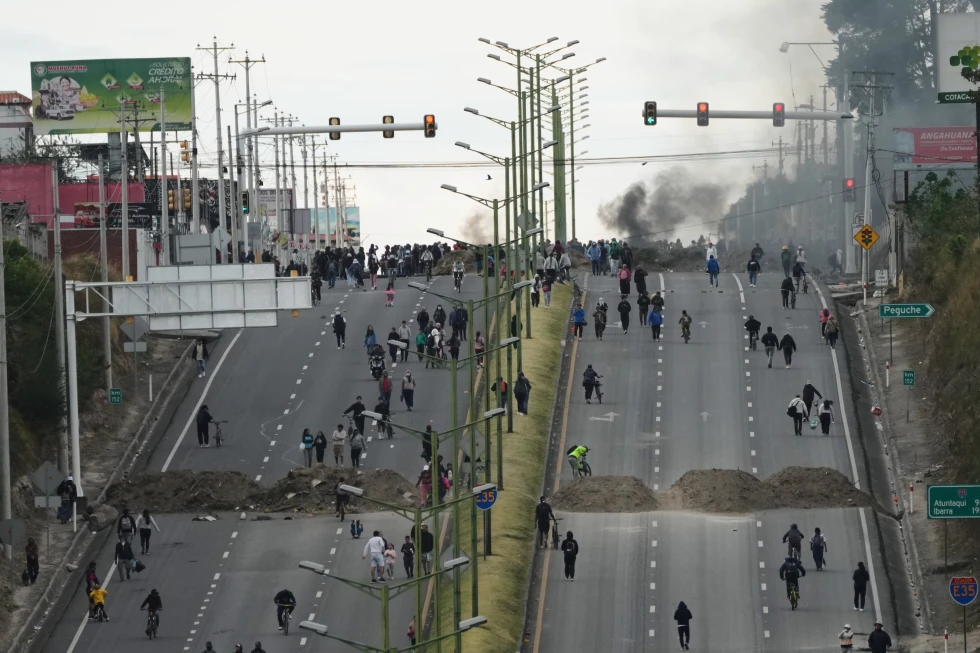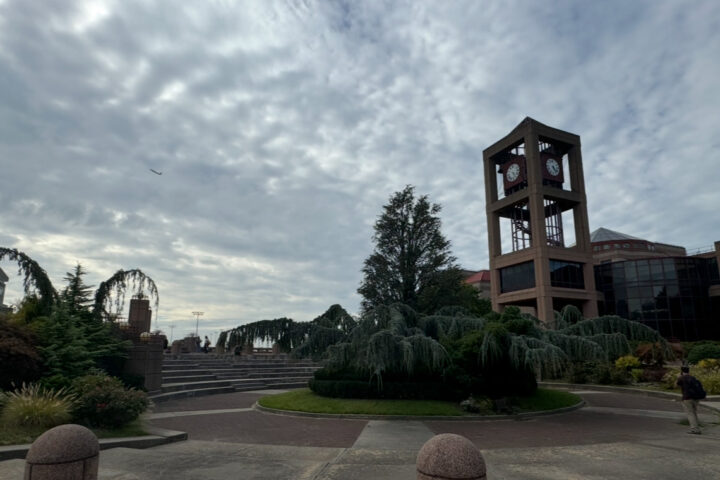On September 12th, President Daniel Noboa’s administration announced that it was eliminating the diesel subsidy causing nationwide protests in Ecuador.
With the withdrawal of this subsidy, the government can refocus $1.1 billion towards social assistance programs and easing pressure on the national budget.
As a result, the price of diesel has risen from $1.80 USD to $2.80 USD per gallon, stirring thousands of citizens, especially from Indigenous communities, to protest, arguing that the decision will raise costs of transportation, agriculture, and basic goods.
As reported by Infobae, CONAIE president, Marlon Vargas, expressed his dismay with President Noboa: “El verdadero terror lo ha impuesto el Gobierno con su represión contra el pueblo.” Translation: “The real terror has been imposed by the government with its repression against the people.”
The protests, led primarily by CONAIE (Confederation of Indigenous Nationalities of Ecuador), included roadblocks (burning tires and toppling trees), marches in Quito and Otavalo, and rallies in several cities.
Protesters argue that rising fuel prices will directly affect basic necessities, as ground transportation is essential for food distribution.
For many, the subsidy has been a lifeline in a country where the cost of living has steadily increased, making demonstrations a defense of the most vulnerable sectors of the population.
However, a new price system is believed to be introduced to consumers on December 12th to provide stability for diesel cost fluctuations.
President Daniel Noboa defended the measure, asserting that the removal of the subsidy is necessary to avoid exploitation by mafias and smugglers, who have abused the system for decades.
According to Primicias, President Noboa declared the call for a Constituent Assembly amidst the turmoil. He explained the aims of the movement: “Devolver el poder al pueblo y sacar al país del secuestro institucional.” Translation: “Return power to the people and take the country out of institutional kidnapping.”
However, opposition groups question the effectiveness of the measure, pointing out that the fuel price increase disproportionately affects low-income families and transport workers, who depend on diesel for their livelihoods.
Experts warn that the outcome of these protests could determine not only Ecuador’s future fuel policies, but also the strength and credibility of the Noboa administration.
If the government manages to balance budgetary objectives with the protection of vulnerable populations, the reform could mark a turning point in the country’s struggle for sustainability.
If it fails, the instability could be reflected in another national crisis, one that could be far worse than what we are experiencing today.
As stated by Infobae, The Minister of Economy and Finance, Sariha Moya, believes that while Ecuadorians have financed the subsidy for decades, the subsidy was being taken advantage of, saying: “Enfrentamos con valentía las decisiones que deben tomarse” y destacó que “los recursos deben ir donde se necesitan”. “Hemos cerrado esa llave para costear algo mejor, para que los recursos vayan a donde se necesitan.” Translation: “We courageously face the decisions that need to be made” and stressed that, “resources must go where they are needed.” “We’ve closed that key to pay for something better, so that resources go where they’re needed.”
For now, the demonstrations continue to serve as a reminder that in Ecuador, economic decisions are never separated from social justice, and that the voices of communities, especially indigenous and working-class ones, remain fundamental and important in defining the country’s political direction and achieving stability for both sides.











